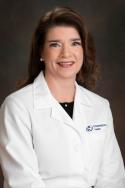Addiction Services
A Foundation for Recovery

Addiction Services at Owensboro Health Twin Lakes Medical Center. The road to recovery starts here.
How to Get Started
To learn more or to begin treatment, simply call the Addiction Services team at 270-230-0212. A physician referral is not needed.
Please note: Patients must be in active withdrawal at the time of admission.
What causes addiction?
The American Society of Addiction Medicine defines addiction as a treatable, chronic medical disease involving complex interactions among brain circuits, genetics, the environment, and an individual’s life experiences. People with addiction use substances or engage in behaviors that become compulsive and often continue despite harmful consequences.
Prevention efforts and treatment approaches for addiction are generally as successful as those for other chronic diseases.
Addiction happens when a person’s body and brain begin to depend on alcohol or drugs, such as opioids, amphetamines or benzodiazepines.
Prescription medications are often used to treat pain and alleviate the effects of mental health conditions such as anxiety but after a person uses them for a long time, the prescriptions can become less effective and the person can develop dependency. Addiction to prescription medications often leads to the use of illicit substances such as methamphetamine and heroin.
Symptoms of addiction
Symptoms of addiction include uncontrollable cravings and inability to control using the addictive substance – even though it's having negative effects on personal relationships or finances. If an opioid-addicted person tries to quit taking the drugs, severe withdrawal symptoms, such as anxiety, sweating, vomiting and diarrhea, make it very difficult, and even harmful, to break the addiction.
Treatment options
Several treatment options help with controlling an addiction and/or quitting drugs or alcohol. Specific medications can help make the symptoms of withdrawal and cravings less severe. Often the most effective treatment includes being admitted to a hospital or treatment center for detox and medications, along with counseling and support groups.
To learn more or to begin treatment, simply call the Addiction Services team at 270-230-0212.
Programs and Services
Detox: Medical Stabilization
OHTLMC offers medical detox from alcohol, opioids and other addictive substances. As the body rids itself of toxins, withdrawal symptoms and cravings are safely managed under the 24-hour supervision of trained professionals. Our addiction services team is committed to supporting patients in the recovery process and is concerned with their comfort and safety.
Non-addictive medications may be prescribed to lessen withdrawal symptoms, in addition to nutritional supplements and fluids. Pain will be managed through the use of non-narcotic medications and other proven therapies. Patients are usually stabilized within a week. If you or a loved one are ready for medical stabilization, help begins with a phone call. When you are ready, we are here to help.
Maternal Opioid Medical Stabilization (MOMS)
Any expectant mother suffering from opioid use disorder may be considered for the MOMS program. Once admitted to the hospital, she will be cared for in a respectful and dignified manner. A non-addictive medication will be prescribed under the 24-hour supervision of caring and specially trained medical professionals.
Studies show that, compared to untreated pregnant women with opioid addiction, those receiving medication assisted treatment gave birth to infants with lower risk of a condition called Neonatal Abstinence Syndrome (NAS). Other benefits of MOMS include shorter treatment time for baby, as well as an increased likelihood of a full term pregnancy, healthier birth weight, and a desirable head circumference at birth.
The typical length of stay in the MOMS program is two to seven days, followed by an individualized treatment plan, including continued outpatient treatment and community-support services to meet the needs of the mother and her unborn baby.
Expecting mothers seeking addiction treatment don’t have to be afraid to give us a call. We will evaluate your situation and determine your appropriateness for admission before even asking for your name. We are here to help and strive to help you become the best mom you can be!
Learn more about Neonatal Abstinence Syndrome and why it’s important to seek medication assisted treatment during pregnancy.
As with other chronic diseases, such as heart disease or asthma, treatment for drug addiction usually isn’t a cure. However, addiction can be managed successfully. Treatment stops the addiction’s disruptive effects on the brain and behavior and enables people to regain control of their lives.
Medication-Assisted Treatment (MAT)
In response to the nationwide opioid crisis, OHTLMC offers medication-assisted treatment options for opioid addiction.
Opioids are prescribed to treat pain, but when used for a long time, the drugs’ effectiveness decreases, and the body can develop a physical and mental dependence on the drugs. Addiction occurs when the need for drugs interferes with daily life, causing uncontrollable cravings and inability to stop using the drug. Severe withdrawal symptoms make it very difficult to quit.
MAT is one of the most effective options for treating individuals with an opioid addiction. OHTLMC Addiction Services uses FDA-approved medications, such as subutex and suboxone, to provide relief from opioid-withdrawal symptoms and to help the patient quit using addictive drugs. The success rate for addiction recovery is greatly increased when MAT is combined with counseling and support-group therapy.
Does MAT Substitute one Addiction for Another?
When a patient receives medical treatment for an opioid addiction, the dosage of medication used does not allow the patient to achieve a euphoric high and does not cause an addiction. Rather, it helps reduce opioid cravings and withdrawal symptoms. These medications restore balance to the brain circuits affected by addiction, allowing the patient’s brain to heal while working toward recovery.
Benefits of MAT
- Decreased opioid use
- Decreased opioid-related criminal activity
- Decreased infectious-disease transmission
- Increased social functioning, including ability to gain and maintain employment
- Increased patient-survival rates
- Increased retention in treatment
- Improved birth outcomes in pregnant women who have substance-use disorders
Our staff can recommend community resources to help patients continue their recovery. Counseling and support groups are effective in preventing a return to opioid use.
“You do not have to walk alone on the road to recovery.”
Call us Today
To inquire about starting treatment or to get information about any of the addiction services we offer, simply call the Addiction Services team at 270-230-0212. A physician referral is not needed.
Please note: Patients must be in active withdrawal at the time of admission.
Resources
How to help a loved one with an addiction:
- SAMHSA.gov/families: Substance Abuse and Mental Health Services Administration (SAMHSA) provides resources for families coping with mental and substance use disorders.
- Guide to Starting the Conversation: When a loved one is experiencing a mental or substance use disorder, it is important to know how to support them and what to say.




